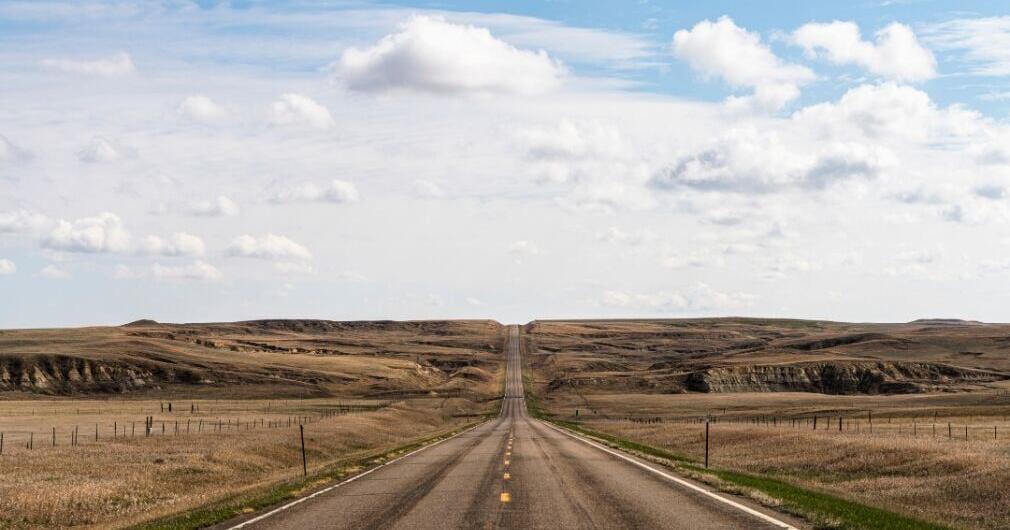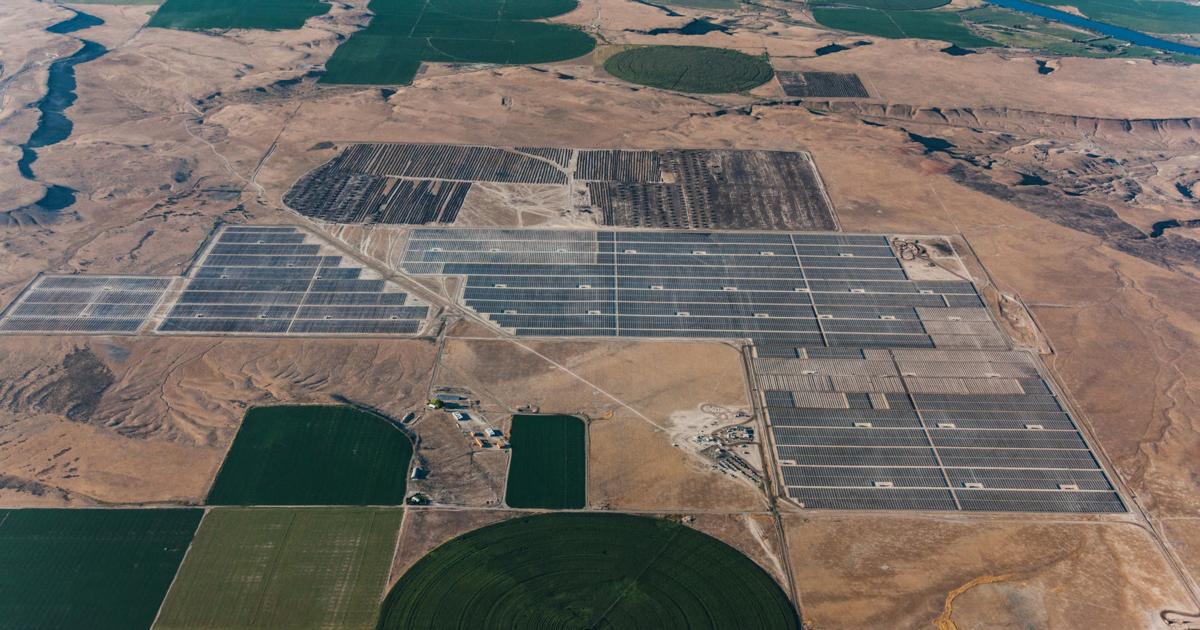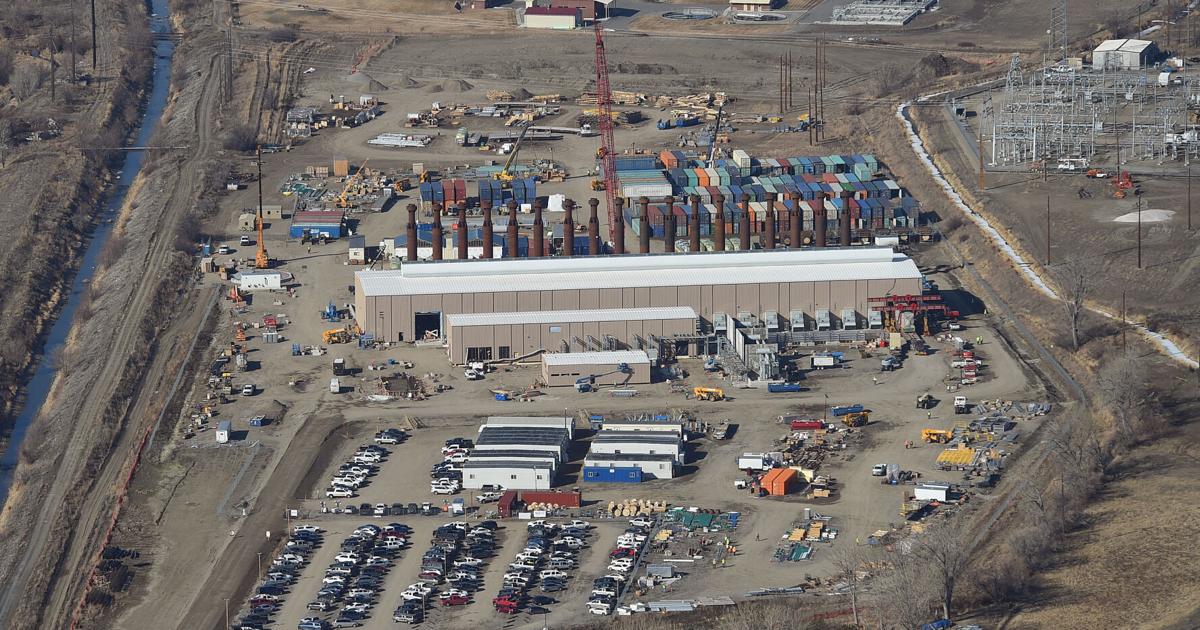NORTH DAKOTA
Jury finds railway contributed to 2 asbestos-tied deaths
HELENA — A federal jury on April 22 said BNSF Railway contributed to the deaths of two people who were exposed to asbestos decades ago when tainted mining material was shipped through a Montana town where thousands have been sickened.
The jury awarded $4 million each in compensatory damages to the estates of the two plaintiffs, who died in 2020. Jurors said asbestos-contaminated vermiculite that spilled in the rail yard in the town of Libby, Montana was a substantial factor in the plaintiffs’ illnesses and deaths.
Family members of the two victims hugged their attorneys after the verdict was announced. An attorney for the plaintiffs said the ruling brought some accountability, but one family member told The Associated Press that no amount of money would replace her lost sister.
The vermiculite from Libby has high concentrations of naturally-occurring asbestos and was used in insulation and for other commercial purposes in homes and businesses across the U.S.
After being mined from a mountaintop outside town, it was loaded onto rail cars that sometimes spilled the material in the Libby rail yard. Residents have described piles of vermiculite being stored in the yard and dust from the facility blowing through downtown Libby.
The jury did not find that BNSF acted intentionally or with indifference so no punitive damages were awarded. Warren Buffett’s Berkshire Hathaway Inc. acquired BNSF in 2010, two decades after the W.R. Grace & Co. vermiculite mine near Libby shut down and stopped shipping the contaminated mineral.
The estates of the two victims argued that the railroad knew the asbestos-tainted vermiculite was dangerous and failed to clean it up. Both lived near the rail yard decades ago and died from mesothelioma, a rare lung cancer linked to asbestos exposure.
A second trial against the railroad over the death of a Libby resident is scheduled for May in federal court in Missoula.
IDAHO
Group pursues 2026 abortion-rights ballot initiative
BOISE — A new Idaho organization says it will ask voters to restore abortion access and other reproductive health care rights in the state after lawmakers let a second legislative session end without modifying strict abortion bans that have been blamed for a recent exodus of health care providers.
Idaho has several anti-abortion laws on the books, including one that makes performing abortions a crime even in medical emergencies unless they are done to save the life of the pregnant patient. The federal government has sued Idaho over the ban, contending it violates a federal law that requires hospitals to provide stabilizing care — including abortion — if a patient’s life or health is at serious risk.
Idaho’s attorneys say the ban allows for life-saving procedures for things like ectopic pregnancies, and they contend the Biden administration is trying to create a federal “abortion loophole” at Idaho hospitals.
The U.S. Supreme Court heard arguments in that case on April 24.
Idahoans United for Women and Families is fundraising and hopes to have one or more ballot initiatives ready to propose this summer in an effort to get them on the 2026 ballot, spokeswoman Melanie Folwell said.
Cynthia Dalsing, a certified nurse midwife in northern Idaho and a board member for Idahoans United for Women and Families, said her region went from offering a “premiere obstetric range of services” to becoming a maternal care desert after the four local obstetricians moved out of state.
Roughly one-quarter of Idaho obstetricians have stopped practicing since a near-total abortion ban took effect in August 2022, along with about half of the state’s maternal fetal medicine doctors, according to data compiled by the Idaho Physician Well-Being Action Collaborative. Three hospitals have closed their labor and delivery units.
NEBRASKA
Governor to call special session on tax relief
OMAHA — Nebraska Gov. Jim Pillen threatened from the beginning of this year’s legislative session that he would call lawmakers back for a special session if they failed to pass a bill to significantly ease soaring property taxes. On the last day of the 60-day session on April 18, some lawmakers who helped torpedo an already anemic tax-shifting bill said they would welcome Pillen’s special session.
Pillen followed through in his address to lawmakers just hours before they adjourned the session without taking a vote on the property tax relief bill he backed, saying he planned to issue a proclamation for a special session.
Nebraska law requires that a special session can be no shorter than seven days and that actions considered must be limited to the subjects outlined in the governor’s proclamation.
Pillen had backed a bill that initially sought to raise the state’s sales tax to 6.5%, which would have been among the highest in the country. It also expanded the sales tax base to items like candy, soda, pet grooming and veterinary services and digital advertising and included some caps on spending by local governments.

By the time it reached the third and last round on the final day of the session, however, the sales tax increase had been stripped away, leaving just a fraction of the property tax savings originally sought.
The bill was key to Pillen’s plan to slash soaring property taxes. Just days into the session, Pillen called for a 40% reduction that would cut $2 billion from the $5.3 billion in property taxes collected in 2023. That property tax revenue compares to $3.4 billion collected just 10 years earlier, and is far more than the collections from sales and income tax, which brought in about $2.3 billion and $3 billion respectively in 2023.
Soaring housing and land prices in recent years have led to ballooning property tax bills for homeowners and farmers, but some homeowners have been hit especially hard, as state law requires residential property to be assessed at nearly 100% of market value, compared to 75% for agricultural land.
The array of proposed sales tax increases was enough to find opponents in both liberals, who complained that it put too much of the tax burden on those least able to afford it, and conservatives, who called for more reductions in spending over new taxes.
NEW MEXICO
Voters can receive absentee ballots permanently
SANTA FE — Registered voters in New Mexico for the first time can join a permanent list to receive an absentee ballot by mail in future elections, state election regulators announced on April 17.
The secretary of state’s office said it was accepting online requests for absentee ballots ahead of the June 4 primary on the website NMVote.org, where qualified voters can opt in to the permanent list.
Previously voters had to request an absentee ballot with each election in a voting process that could involve three or four mail deliveries.

Absentee ballots can be returned by mail or by hand at county clerks’ offices or ballot drop boxes in some areas. The deadline for requesting an absentee ballot in the state’s June 4 primary is May 21.
New Mexico’s permanent absentee ballot list was authorized under 2023 legislation aimed at expanding access to the ballot in New Mexico. The law also requires that each of New Mexico’s 33 counties maintain at least two monitored ballot drop boxes, though county clerks can request an exemption.
Secretary of State Maggie Toulouse Oliver said in a statement that the option is one way the state has increased the convenience of voting.
KANSAS
Ostrich at zoo dies after swallowing staffer’s keys
TOPEKA — A beloved ostrich at the Topeka Zoo & Conservation Center in Kansas has died after swallowing a staff member’s keys.
The zoo announced in a social media post on April 19 that the 5-year-old ostrich named Karen had reached beyond her exhibit’s fence and grabbed and swallowed the employee’s keys. Staff consulted with experts around the U.S. “to undergo surgical and non-surgical efforts to minimize the impact of the keys. Unfortunately, these efforts were unsuccessful,” the zoo said.
Karen was euthanized on April 18 and “passed away in staff’s hands,” Topeka Zoo Interim Director Fawn Moser said in an email.

Said Moser: ”She was not just an animal; she was a beloved member of our community. Our thoughts are with our dedicated animal care team, who formed deep bonds with Karen during her time with us.”
The adored ostrich had been at the zoo since March 2023. She was known for her love of playing in water “and, best of all, being our ‘dancing queen!’” the zoo said.
The zoo said it undertook an investigation and “is taking appropriate actions regarding the team member involved.” The zoo also said it would review and enhance safety protocols for its animals.



































